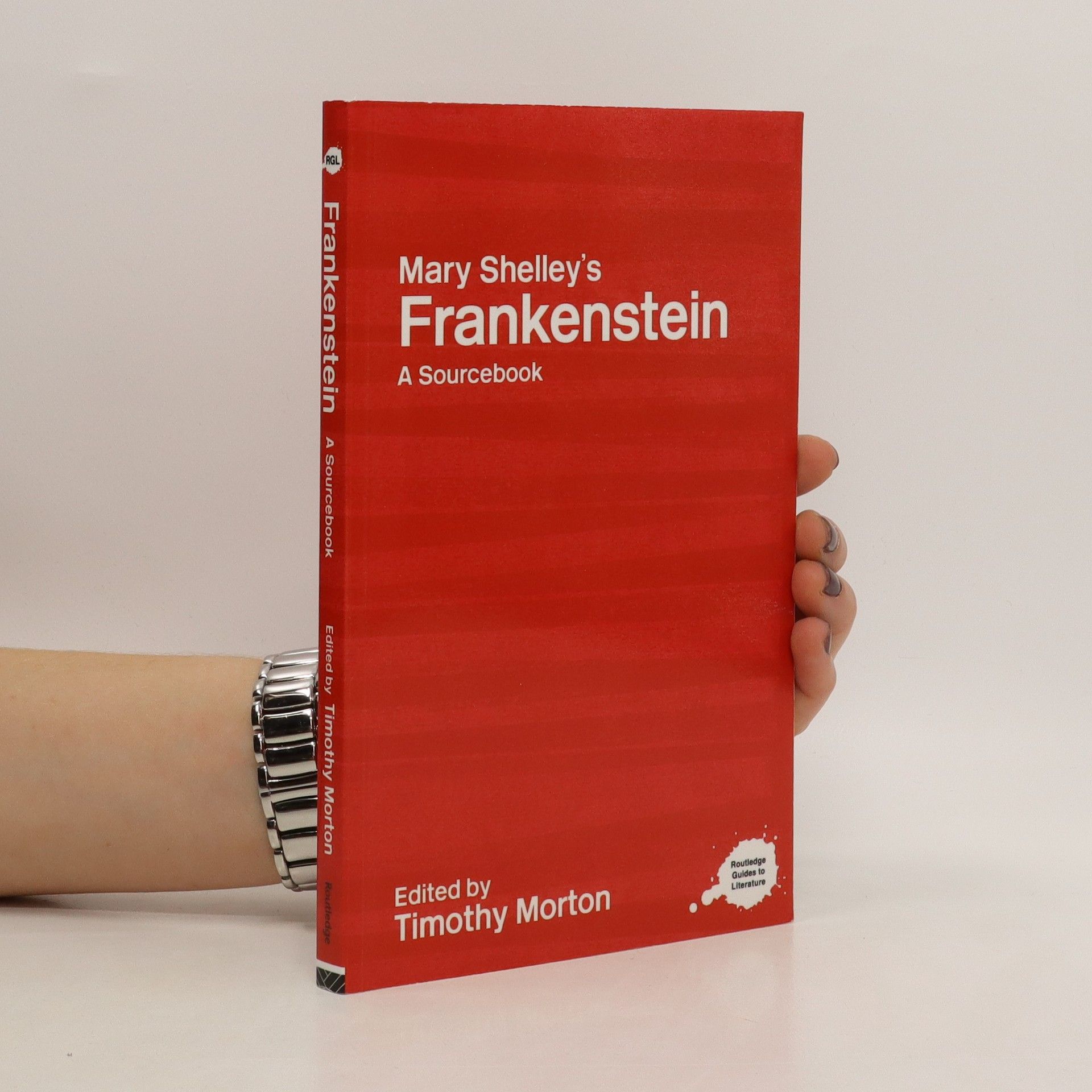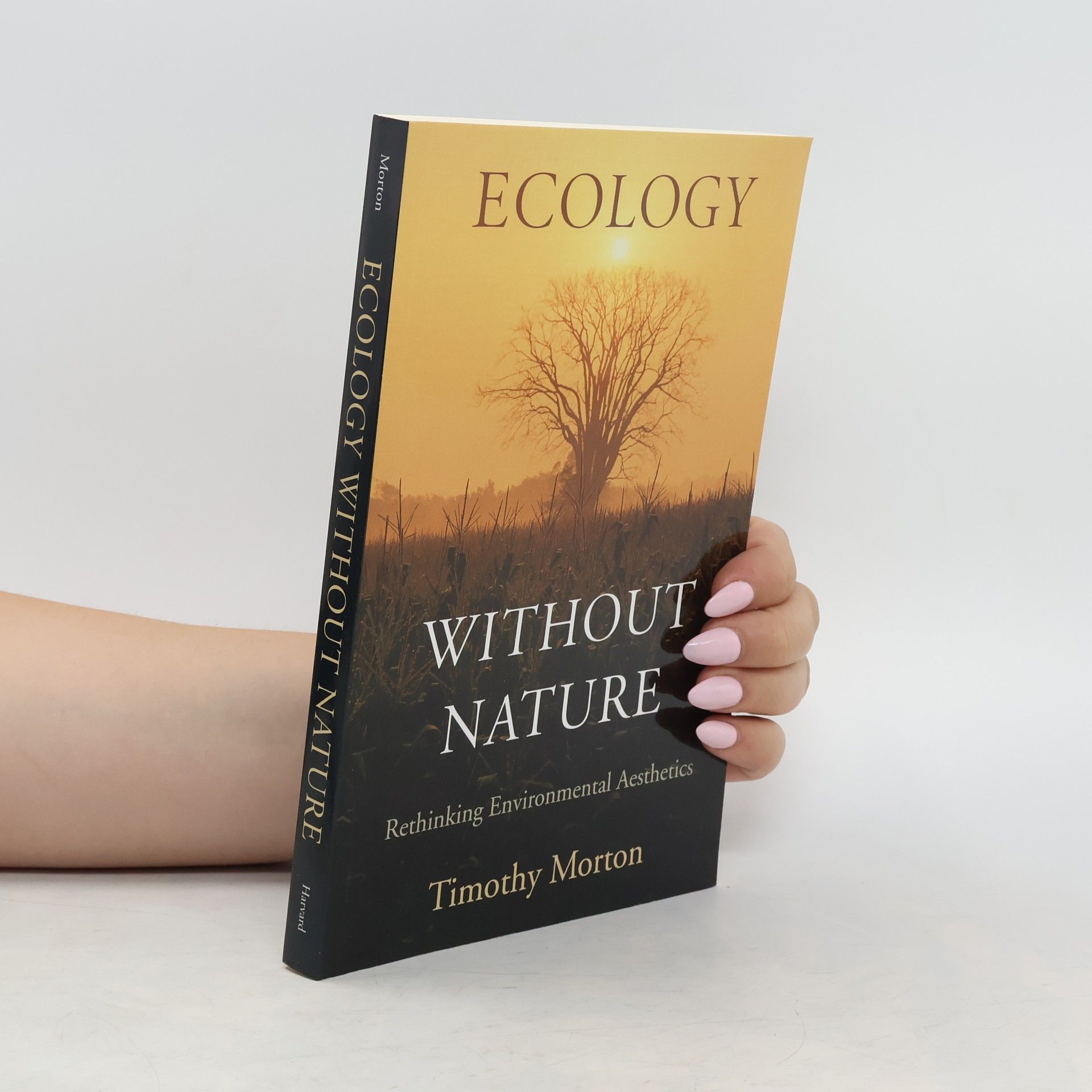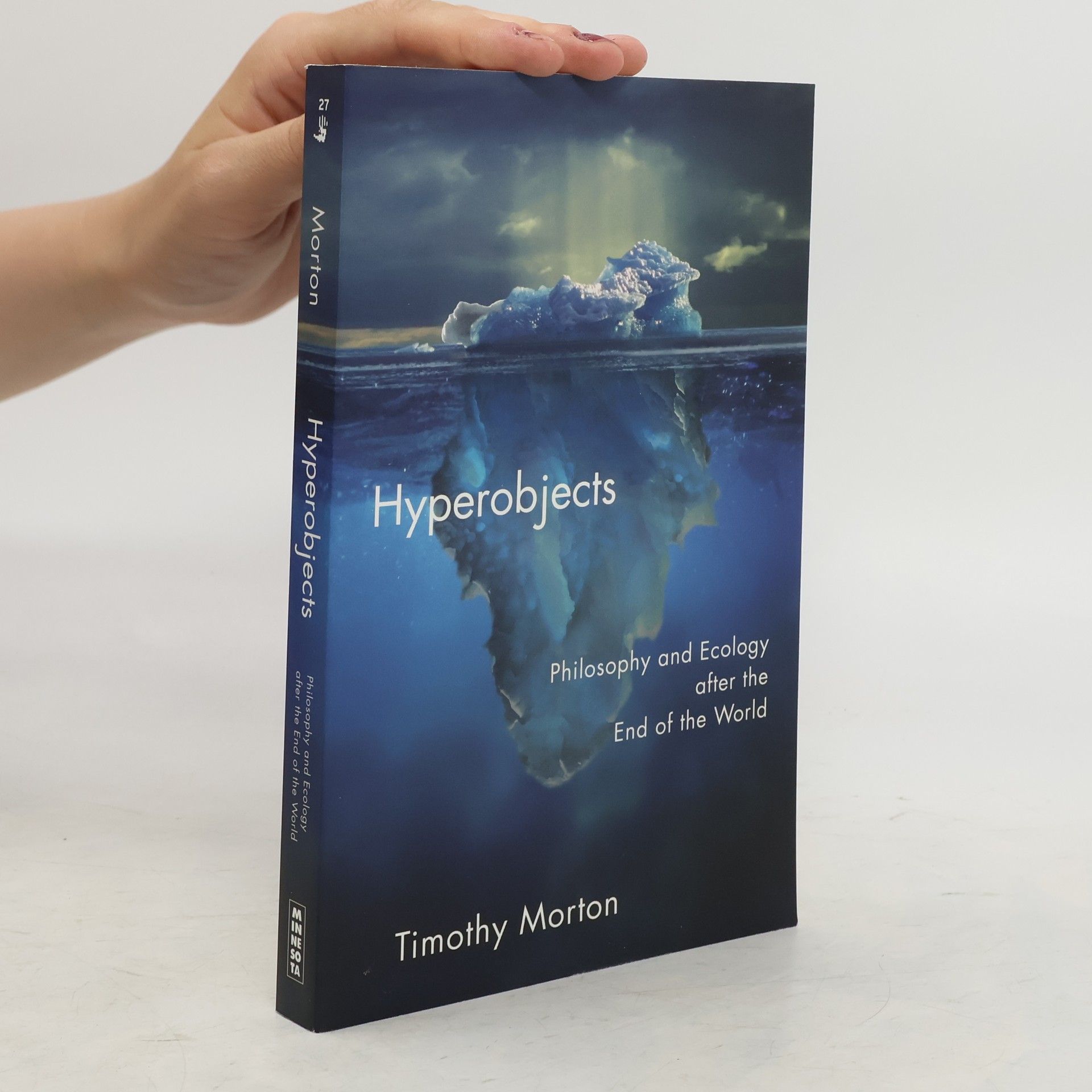Nur scheinbar formuliert Timothy Morton in diesem bahnbrechenden Buch des Ecocriticism ein Paradox: Das Bild, das wir uns von der Natur machen, verhindert, dass wir der Umwelt, in der wir leben, gerecht werden können, dass wir ihre Ökologie begreifen. Stets trachtet das Schreiben über die Natur danach, eine Weltsicht zu vermitteln, die die Natur bewahrt und respektiert. Kein Wunder, dass wir uns angesichts der ökologischen Katastrophe, die wir erleben, nach einer unversehrten, wilden und ›unschuldigen‹ Natur sehnen. Aber die Feier der Natur, oder der Einheit mit ihr, trübt unseren Blick. Rigoros und verstörend stellt Morton unsere ökologischen Grundannahmen auf den Prüfstand und versucht, ein neues Vokabular für das Verständnis von Natur zu entwickeln. In einem Parforceritt durch die Literatur- und Philosophiegeschichte trägt das Buch dazu bei, unseren Blick auf ökologische Zusammenhänge zu weiten und den Umweltgedanken in einen geistesgeschichtlichen Kontext zu stellen, der ihm politisch und intellektuell mehr Schlagkraft verleiht.
Timothy Morton Bücher
Timothy Morton ist ein führender Denker, dessen Werk sich mit der komplexen Beziehung zwischen Menschheit und Ökologie in der heutigen Welt auseinandersetzt. Seine oft provokanten und tiefgründigen philosophischen Schriften erforschen Konzepte wie Hyperobjekte und dunkle Ökologie, um unsere gegenwärtige Existenz neu zu deuten. Mortons Analyse fordert uns heraus, unseren Platz im Ökosystem zu bedenken und neue Wege der Koexistenz mit der Welt um uns herum zu finden. Sein innovativer Ansatz zur ökologischen Krise bietet den Lesern neue Perspektiven und Anstöße für tiefere Reflexion.







This study offers a unique exploration of Shelley's ideas, connecting them to themes of diet, consumption, and the human body within the context of nature and culture. It delves into how these elements intersect with Shelley's philosophy, providing fresh insights into his work and its relevance to contemporary discussions on these topics.
The Stuff of Life
- 158 Seiten
- 6 Lesestunden
The narrative revolves around the profound connection between a seemingly ordinary old teapot and the memories it evokes. Through its daily use, the teapot serves as a vessel for nostalgia, revealing more about the narrator's past than any written record. This exploration highlights themes of memory, the significance of everyday objects, and the stories they carry, inviting readers to reflect on their own experiences and the tangible links to their history.
Being Ecological, with a New Preface by the Author
- 224 Seiten
- 8 Lesestunden
Focusing on ecology, this guide offers a refreshing perspective that avoids overwhelming readers with information or inducing guilt. It aims to engage a broad audience without preaching to those already aware of environmental issues. The new edition presents accessible insights into ecological challenges, making it a valuable resource for anyone looking to understand and engage with environmental topics meaningfully.
The book presents a transformative vision that combines elements of Christianity and biology to address the urgent crisis of global warming. It advocates for a radical shift in perspective, aiming to transcend destructive societal norms and envision a future that fosters ecological harmony and inclusivity. Through this unique approach, the author seeks to inspire a spiritual awakening that challenges prevailing ideologies and promotes a more sustainable and equitable world.
Mary Shelley's Frankenstein : a sourcebook
- 220 Seiten
- 8 Lesestunden
Mary Shelley's Frankenstein is one of the most widely studied works of English literature, and Frankenstein's creature is a key figure in the popular imagination.This sourcebook examines Mary Shelley's novel within its literary and cultural contexts, bringing together material *the contexts from which Frankenstein emerged*the novel's early reception*adaptation and performance of the work (from theatre to pop music)*recent criticism.All documents are discussed and explained. The volume also includes offers carefully annotated key passages from the novel itself and concludes with a list of recommended editions and further reading, to allow readers to pursue their study in the areas that interest them most. This sourcebook provides an ideal orientation to the novel, its reception history and the critical material that surrounds it.
The Ecological Thought
- 184 Seiten
- 7 Lesestunden
Argues that various forms of life are connected in a vast, entangling mesh and this interconnectedness penetrates different dimensions of life. This title investigates the profound philosophical, political, and aesthetic implications of the fact that these life forms are interconnected.
In Ecology without Nature, Timothy Morton argues that the chief stumbling block to environmental thinking is the image of nature itself. Ecological writers propose a new worldview, but their very zeal to preserve the natural world leads them away from the "nature" they revere. The problem is a symptom of the ecological catastrophe in which we are living. Morton sets out a seeming paradox: to have a properly ecological view, we must relinquish the idea of nature once and for all. Ecology without Nature investigates our ecological assumptions in a way that is provocative and deeply engaging. Ranging widely in eighteenth-century through contemporary philosophy, culture, and history, he explores the value of art in imagining environmental projects for the future. Morton develops a fresh vocabulary for reading "environmentality" in artistic form as well as content, and traces the contexts of ecological constructs through the history of capitalism. From John Clare to John Cage, from Kierkegaard to Kristeva, from The Lord of the Rings to electronic life forms, Ecology without Nature widens our view of ecological criticism, and deepens our understanding of ecology itself. Instead of trying to use an idea of nature to heal what society has damaged, Morton sets out a radical new form of ecological criticism: "dark ecology."
Humankind
- 224 Seiten
- 8 Lesestunden
A radical call for solidarity between humans and non-humans
Hyperobjects
- 240 Seiten
- 9 Lesestunden
A Quake in Being: An Introduction to Hyperobjects Part I. What Are Hyperobjects? Viscosity Nonlocality Temporal Undulation Phasing Interobjectivity Part II. The Time of Hyperobjects The End of the World Hypocrisies The Age of Asymmetry.

